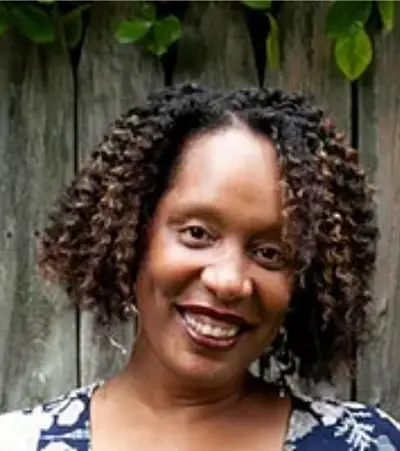Day in the life of
School Mental Health Therapist – Wendy Pitts

I am Wendy B. Pitts, LCSW-C and in my day job, I am a School Mental Health Therapist (MHT) for a public alternative education school in Maryland. Students can be sent to an Alternative Education placement, for a variety of reasons, however, they are typically removed from their comprehensive school because of their behavior. My job as an MHT is to assist the students in learning the skills necessary to be successful in the classroom, and eventually return to the comprehensive school setting.
I provide behavior support in the classroom, co-facilitate groups with a colleague, and provide individual counseling with the students on my caseload. I also step in during crisis situations. Sometimes that is assessing suicide risk. Sometimes that is helping to de-escalate a fight. In addition to supporting the mental health needs of the students, I make a point of letting the staff know that my door is open to them as well.
My typical day
On a typical day, I greet students as they arrive and use this time to do what we call a temperature check. This is a quick assessment of the mood the students are entering the building with. I have a caseload of 10-12 students, and if any of my students appear to be upset about something, I’ll pull them aside before they go to their 1st period class and try to ascertain what is going on. There are other MHT in the building, and some may be assigned to other duties first thing in the morning, so if I notice that a student not on my caseload may need some attention first thing in the morning, I’ll make sure to let their therapist know.
Once all of my students are settled in their classes, my day becomes less predictable. All of my students have a day and time that they are scheduled to meet with me as their therapist, but as attendance is frequently a concern at the school, I will meet with them whatever day they are present. Outside of their scheduled appointments, the students also know that they are welcome to stop by my office anytime they need me as long as I’m not with another student. Some days this is because they are angry about something happening in the classroom and other days they are with me because they can’t focus in the class, and my office is a quiet place for them to get their work done. I sometimes get calls from teachers that a student is in need of support and I’ll go to the class to help them out. This may just mean sitting beside the student to assist him with staying on task or helping them figure out more classroom appropriate ways of getting his needs met than whatever behavior he was displaying prior to the teacher calling for assistance.
As a MHT, I am also called to intervene in crisis situations. Some days this is de-escalating students who are heading towards a fight. Sometimes it’s too late for de-escalating, and my job is to keep one of the combatants in my office and try to get a statement about what happened while we wait for a parent to pick the student up. I also may be called to do a suicide assessment if a student has made a concerning statement or gesture. When there have been large scale crises in the community, the full crisis team comes together to decide how we as a school should handle the situation. This may mean crafting a statement to be read to the staff prior to the students arrival and another for teachers to read to students during their first period class. If a teacher is too upset to read the statement to her class, I may be asked to step in and read it in her place.
I typically co-facilitate one or two therapy groups per year. Most recently I started a teen dating violence prevention group. As the groups will not consist of my caseload alone, I work with the rest of the MHT team to decide which of our students would most benefit from participating in whatever group we are starting. Groups run on the same day weekly, however, we move the time around so that the students are missing the same class every week.
In addition to supporting the mental health needs of the students, I let the staff know that my door is open to them as well. Sometimes when walking around the building to check on the students, I’ll pass a classroom where the teacher is obviously having a bad day. I may step in to ask that teacher if she needs a break to take a walk while I watch her class or I may make a point of going to her during her planning time to ask how I can help.
Pros
The best part of my school job is that I get to spend time with some amazing kids. What I love about working in an academic setting is that there is an expert on everything. I need something built, and I head to the Tech Ed classroom and ask if the students can work on a project. If my own children are struggling with math homework, I have multiple members of the math department on speed dial. If I need something translated for the parents of my Spanish-speaking students, I go to the World Languages department. I have written a book, and English teachers make great editors. I guess the biggest pro of my work as a school mental health therapist is the people.
Cons
The most challenging part of my job as an MTH is knowing that no matter how hard I work for them, I can’t protect them from everything that is working against them in life. No matter how much improvement they have made, I can not force their comprehensive schools to let them return. I hate that when I tell people that I work in Alternative Education, they look at me like I’m a pariah who is being punished for a past misdeed, or like I’m a martyr who should be nominated for sainthood. The main con of this job is loving kids that others don’t value.
Mental Health Counselors
counsel and advise individuals and groups to promote optimum mental and emotional health, with an emphasis on prevention. May help individuals deal with a broad range of mental health issues, such as those associated with addictions and substance abuse; family, parenting, and marital problems; stress management; self-esteem; or aging.





.jpg)